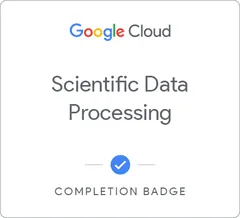
Processing Big Data with Azure Data Lake Analytics 
This course teaches students how to use the power of the Azure cloud to store and process big data using Azure Data Lake technologies. Students will learn how to manage data in Azure Data Lake Store and run U-SQL jobs in Azure Data Lake Analytics to generate insights from structured and unstructured data sources. A Microsoft Azure subscription is required to complete the course. ▼
ADVERTISEMENT
Course Feature
![]() Cost:
Cost:
Free
![]() Provider:
Provider:
Edx
![]() Certificate:
Certificate:
No Information
![]() Language:
Language:
English
![]() Start Date:
Start Date:
1st Apr, 2019
Course Overview
❗The content presented here is sourced directly from Edx platform. For comprehensive course details, including enrollment information, simply click on the 'Go to class' link on our website.
Updated in [March 06th, 2023]
[Course Overview]
This course provides an introduction to Azure Data Lake Analytics and how to use it to process big data. You will learn how to store and manage data in Azure Data Lake Store, and how to use U-SQL to run jobs in Azure Data Lake Analytics to generate insights from structured and unstructured data sources. You will also learn how to use Azure Data Lake Analytics to create and manage data pipelines, and how to use Azure Data Lake Analytics to create and manage data pipelines. Finally, you will learn how to use Azure Data Lake Analytics to monitor and optimize data processing jobs.
[Why Learn]
Learning how to use Azure Data Lake Analytics to process big data can help you gain a competitive edge in the data-driven world. With Azure Data Lake Analytics, you can quickly and easily store and process large amounts of data, and generate insights from structured and unstructured data sources. You can also use Azure Data Lake Analytics to create and manage data pipelines, and to monitor and optimize data processing jobs.
[Development Paths]
This course is designed to provide a comprehensive introduction to Azure Data Lake Analytics and how to use it to process big data. After completing this course, you can continue to develop your skills by taking more advanced courses in Azure Data Lake Analytics, such as Advanced Azure Data Lake Analytics, or by taking courses in related technologies, such as Azure Machine Learning or Azure Data Factory.
[Related Learning Suggestions]
If you are interested in learning more about Azure Data Lake Analytics, you may want to consider taking courses in related technologies, such as Azure Machine Learning or Azure Data Factory. You may also want to consider taking courses in data analysis, such as Data Analysis with Python or Data Visualization with Tableau. Finally, you may want to consider taking courses in cloud computing, such as Introduction to Cloud Computing or Cloud Computing Security.
[Applications]
After completing this course, participants should be able to apply the knowledge they have gained to store and process data at scale using Azure Data Lake technologies. They should be able to manage data in Azure Data Lake Store and run U-SQL jobs in Azure Data Lake Analytics to generate insights from structured and unstructured data sources. Additionally, participants should be able to use their Microsoft Azure subscription to minimize the resource costs required to complete the hands-on activities.
[Career Paths]
1. Data Scientist: Data Scientists are responsible for analyzing large amounts of data and using it to develop insights and strategies for businesses. They use a variety of tools and techniques to uncover trends and patterns in data, and then use this information to inform decisions. Data Scientists are in high demand as businesses increasingly rely on data-driven decision making.
2. Data Engineer: Data Engineers are responsible for designing, building, and maintaining data pipelines and systems. They use a variety of technologies to collect, store, and process data, and then use this data to create insights and inform decisions. Data Engineers are in high demand as businesses increasingly rely on data-driven decision making.
3. Business Intelligence Analyst: Business Intelligence Analysts are responsible for analyzing data to identify trends and patterns that can be used to inform business decisions. They use a variety of tools and techniques to uncover insights from data, and then use this information to inform decisions. Business Intelligence Analysts are in high demand as businesses increasingly rely on data-driven decision making.
4. Data Architect: Data Architects are responsible for designing and implementing data architectures that enable businesses to store, process, and analyze data. They use a variety of technologies to create data architectures that are scalable, secure, and efficient. Data Architects are in high demand as businesses increasingly rely on data-driven decision making.
[Education Paths]
1. Bachelor's Degree in Computer Science: A Bachelor's Degree in Computer Science is a great way to gain the skills and knowledge needed to work with big data and Azure Data Lake Analytics. This degree program typically covers topics such as programming, data structures, algorithms, software engineering, and database systems. Students will also learn about cloud computing, distributed systems, and data mining. With this degree, graduates will be prepared to work in a variety of roles related to big data and analytics.
2. Master's Degree in Data Science: A Master's Degree in Data Science is a great way to gain the skills and knowledge needed to work with big data and Azure Data Lake Analytics. This degree program typically covers topics such as machine learning, data mining, data visualization, and predictive analytics. Students will also learn about cloud computing, distributed systems, and data engineering. With this degree, graduates will be prepared to work in a variety of roles related to big data and analytics.
3. Master's Degree in Business Analytics: A Master's Degree in Business Analytics is a great way to gain the skills and knowledge needed to work with big data and Azure Data Lake Analytics. This degree program typically covers topics such as data mining, data visualization, predictive analytics, and business intelligence. Students will also learn about cloud computing, distributed systems, and data engineering. With this degree, graduates will be prepared to work in a variety of roles related to big data and analytics.
4. Doctoral Degree in Data Science: A Doctoral Degree in Data Science is a great way to gain the skills and knowledge needed to work with big data and Azure Data Lake Analytics. This degree program typically covers topics such as machine learning, data mining, data visualization, and predictive analytics. Students will also learn about cloud computing, distributed systems, and data engineering. With this degree, graduates will be prepared to work in a variety of roles related to big data and analytics, as well as pursue research and teaching opportunities.
Course Provider

Provider Edx's Stats at AZClass
Discussion and Reviews
0.0 (Based on 0 reviews)
Explore Similar Online Courses

Scientific Data Processing

GMAT Official Guide 13th Ed: Math Explanations Part 2 of 2

Python for Informatics: Exploring Information

Social Network Analysis

Introduction to Systematic Review and Meta-Analysis

The Analytics Edge

DCO042 - Python For Informatics

Causal Diagrams: Draw Your Assumptions Before Your Conclusions

Whole genome sequencing of bacterial genomes - tools and applications

Microsoft Azure Online Data Engineering Training

Cloud Developer using Microsoft Azure

Microsoft Azure Certification
 Related Categories
Related Categories
 Popular Providers
Popular Providers
Quiz
 Submitted Sucessfully
Submitted Sucessfully
1. What is the prerequisite for this course?
2. What is the purpose of this course?
3. What is the resource cost required to complete the hands-on activities?
4. What is the URL for signing up for a free trial subscription of Microsoft Azure?
Correct Answer: http://azure.microsoft.com


Start your review of Processing Big Data with Azure Data Lake Analytics